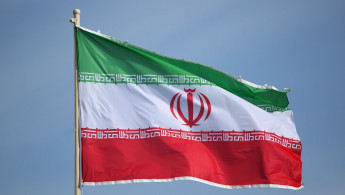Iran rejects dialogue with US after fresh sanctions
Iran's UN ambassador said Monday that conditions were not ripe for a dialogue with the United States after President Donald Trump imposed new sanctions on Tehran.
As the UN Security Council met behind closed doors, Ambassador Majid Takht Ravanchi told reporters that the United States must stop "its economic war against the Iranian people."
"You cannot start a dialogue with somebody who is threatening you, who is intimidating you," said Ravanchi.
"The atmosphere of such a dialogue is not ready yet."
The ambassador spoke a few hours after the United States announced a raft of new sanctions that target Iran's supreme leader Ayatollah Ali Khamenei and eight Iranian commanders.
The US Treasury also said it plans to blacklist Iranian Foreign Minister Mohammad Javad Zarif, stepping up pressure on Tehran to address US demands.
"As long as this threat is there, there is no way that Iran and the US can start a dialogue," said the ambassador.
Ravanchi renewed an appeal for talks with regional countries on improving security and said he had asked the United Nations to play a role in promoting such a forum.
The Security Council was meeting at the request of the United States after Iran last week shot down a US surveillance drone that Tehran insists had ventured into its airspace - a claim rejected by Washington.
Trump said he had called off US military strikes against Iran because he decided there would be too many deaths, but tensions soared anyway.
French Ambassador Francois Delattre told reporters ahead of the meeting that stepped-up sanctions by Washington had to be matched with intensified diplomatic efforts.
"We are at a time when maximum pressure only makes sense with maximum diplomacy," said Delattre.





 Follow the Middle East's top stories in English at The New Arab on Google News
Follow the Middle East's top stories in English at The New Arab on Google News
![Israeli forces ordered bombed Gaza's Jabalia, ordering residents to leave [Getty]](/sites/default/files/styles/image_330x185/public/2176418030.jpeg?h=a5f2f23a&itok=_YGZaP1z)

